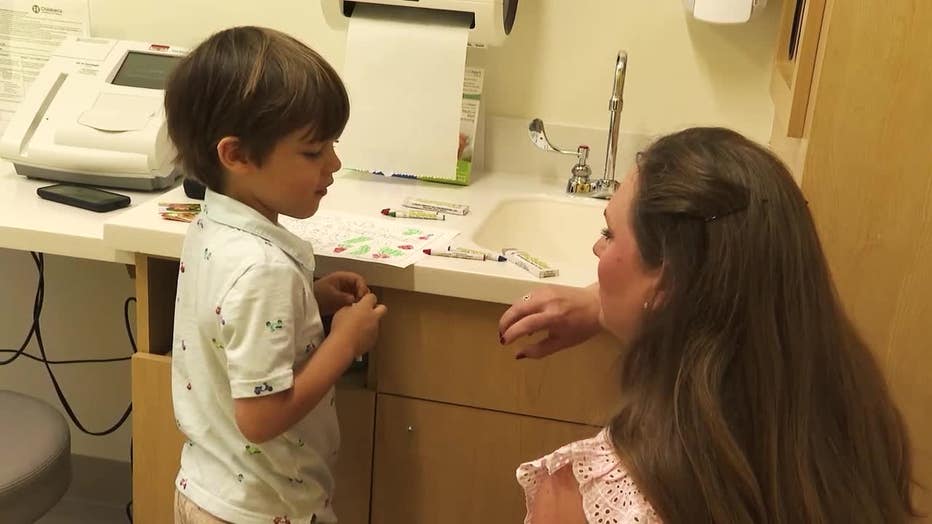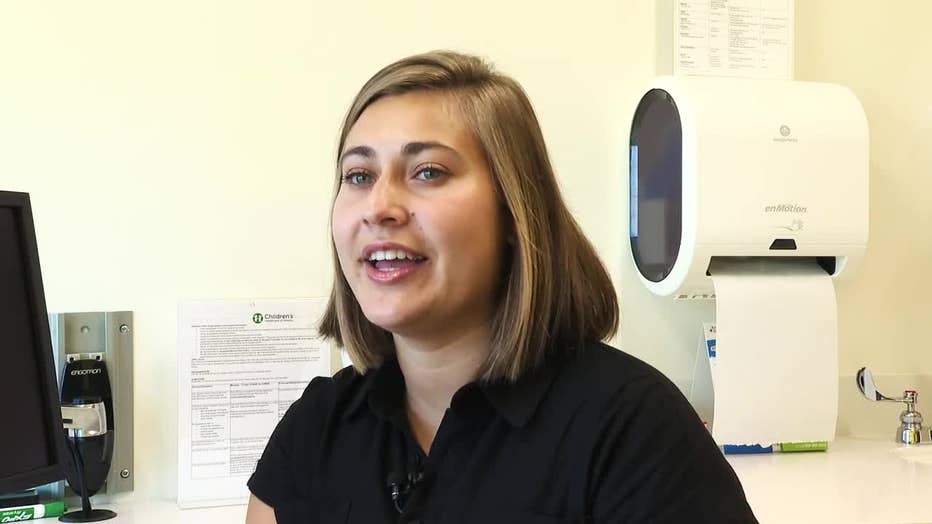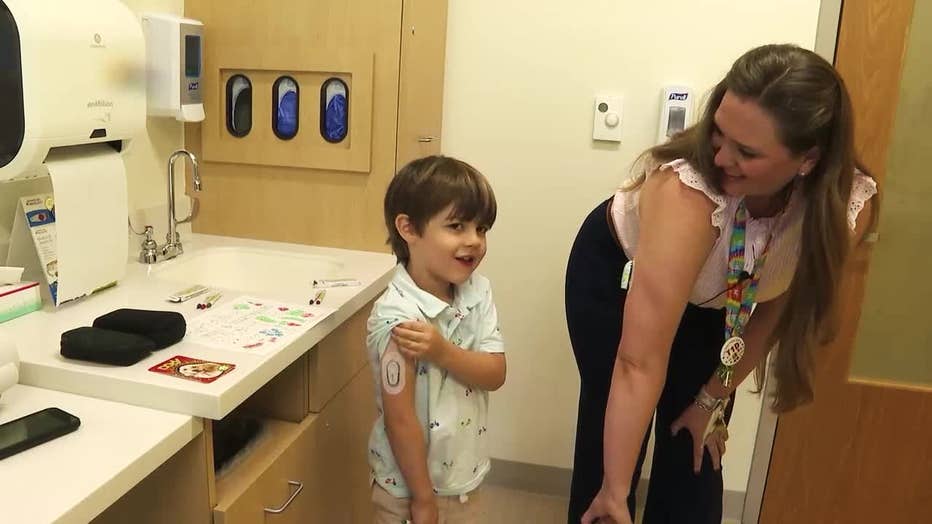Former Children's Healthcare patients helping others with their diabetes diagnoses
ATLANTA - Juvenile diabetes can be a scary diagnosis for any parent and child. According to the American Diabetes Association, around 352,000 American children 20 and younger are diagnosed with the disease. It can impact every facet of life, from what foods to eat, to activities, and stress. At Children's Healthcare of Atlanta, six members of the team helping these young people tackle their diagnosis and thrive used to be patients in the same practice.
Children's Healthcare of Atlanta has become familiar for Elizabeth Harder and her 5-year-old son, August. He was diagnosed with Type 1 Diabetes three years ago. She says at first the diagnosis felt overwhelming.
"I couldn't see past the madness to see that it was going to get to a point where it was just like brushing your teeth," she said to Good Day's Lindsay Tuman.
To figure out how to navigate a whole new way of living, there's a team of diabetes educators at Children's Healthcare of Atlanta, including Allison Higgins. She's worked directly with August since he was diagnosed.,

"We have more diabetes educators for our patients than almost any other practice in the country," Higgins said.
"I remember the conversation with Allison when she shared she was Type 1. And it was a relief that washed over me," Harder said.
Higgins is one of the six diabetes educators with Children's Healthcare of Atlanta who also used to be a patient with Type 1 diabetes in the same practice. Justyna Zabinski is as well.

"All the way up and through college I grew up going to Children's. And I just knew that this was the place that I wanted to be, and I got to go through all of my life stages with Children's," Zabinski said.
Both of these healthcare workers say they can have a special connection with the patients they treat every day thanks to their similar experience as patients in the practice. Sometimes it's as simple as being able to answer questions like how to count the carbs in chips, or how they handle their dosages for pizza. They say it's also a benefit that they're able to help each other at work.
"Not only being able to talk to my patients but also to talk to my coworkers, like 'What do you do when you're eating pizza, how do you bolus for this,'" Zabinski said.

While their main job is educating their patients on how to manage the disease, the biggest thing they hope to teach them is they're not defined by diabetes.
'It's something that I need to manage, it's something I need to be responsible for, but it's not the end,' Higgins said.
"And just because you have diabetes, it doesn't stop us from playing sports or if we want to be a mom or be an actor, this does not stop us from being who we want to be," Zabinski said.

